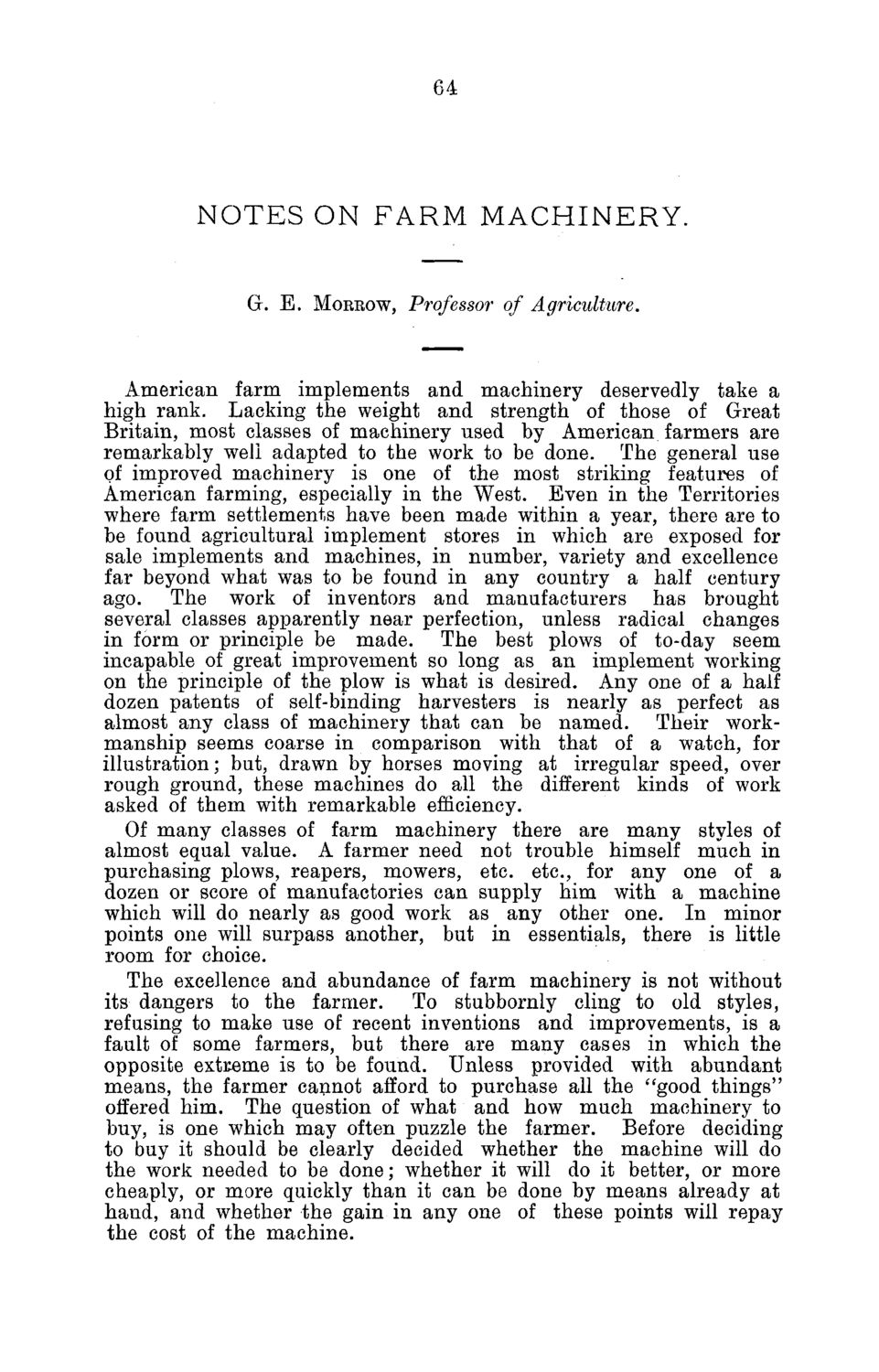| |
| |
Caption: Board of Trustees Minutes - 1882
This is a reduced-resolution page image for fast online browsing.

EXTRACTED TEXT FROM PAGE:
64 N O T E S ON F A R M M A C H I N E R Y . Gr. E. MORROW, Professor of Agriculture. American farm implements and machinery deservedly take a high rank. Lacking the weight and strength of those of Great Britain, most classes of machinery used by American farmers are remarkably well adapted to the work to be done. The general use of improved machinery is one of the most striking features of American farming, especially in the West. Even in the Territories where farm settlements have been made within a year, there are to be found agricultural implement stores in which are exposed for sale implements and machines, in number, variety and excellence far beyond what was to be found in any country a half century ago. The work of inventors and manufacturers has brought several classes apparently near perfection, unless radical changes in form or principle be made. The best plows of to-day seem incapable of great improvement so long as an implement working on the principle of the plow is what is desired. Any one of a half dozen patents of self-binding harvesters is nearly as perfect as almost any class of machinery that can be named. Their workmanship seems coarse in comparison with that of a watch, for illustration; but, drawn by horses moving at irregular speed, over rough ground, these machines do all the different kinds of work asked of them with remarkable efficiency. Of many classes of farm machinery there are many styles of almost equal value. A farmer need not trouble himself much in purchasing plows, reapers, mowers, etc. etc., for any one of a dozen or score of manufactories can supply him with a machine which will do nearly as good work as any other one. In minor points one will surpass another, but in essentials, there is little room for choice. The excellence and abundance of farm machinery is not without its dangers to the farmer. To stubbornly cling to old styles, refusing to make use of recent inventions and improvements, is a fault of some farmers, but there are many cases in which the opposite extreme is to be found. Unless provided with abundant means, the farmer cannot afford to purchase all the "good things" offered him. The question of what and how much machinery to buy, is one which may often puzzle the farmer. Before deciding to buy it should be clearly decided whether the machine will do the work needed to be done; whether it will do it better, or more cheaply, or more quickly than it can be done by means already at hand, and whether the gain in any one of these points will repay the cost of the machine.
| |